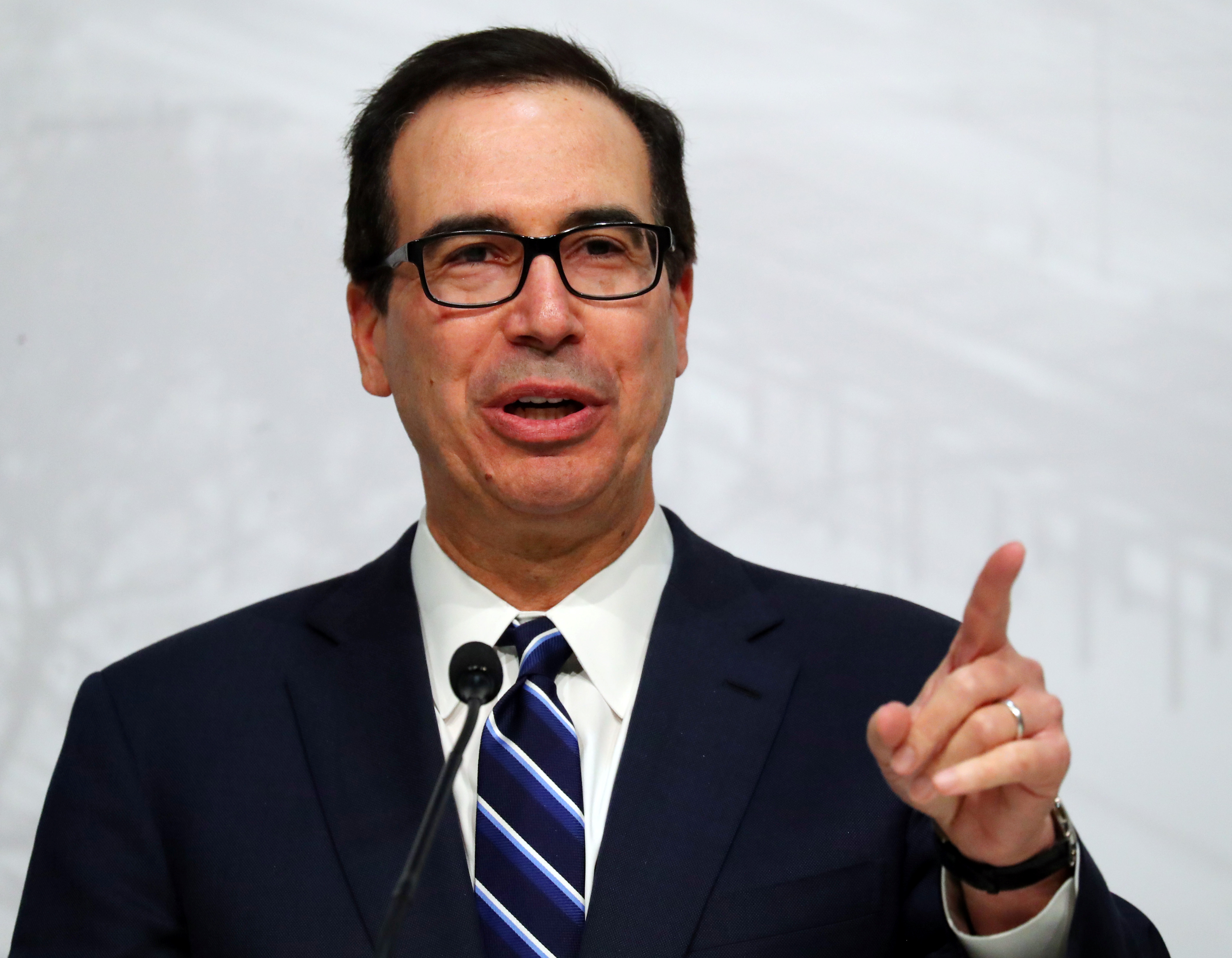U.S. Secretary of the Treasury Steven Mnuchin speaks during a news conference at the G20 Meeting of Finance Ministers in Buenos Aires, Argentina, July 22, 2018. REUTERS/Marcos Brindicci

By Steve Holland
WASHINGTON/SHANGHAI (Reuters) – The Trump administration has invited Chinese officials to restart trade talks, the White House’s top economic adviser said on Wednesday, as Washington prepares to further escalate the U.S.-China trade war with tariffs on $200 billion worth of Chinese goods.
Larry Kudlow, who heads the White House Economic Council, told Fox Business Network that U.S. Treasury Secretary Steven Mnuchin had sent an invitation to senior Chinese officials, but he declined to provide further details.
“There’s some discussions and information that we received that the Chinese government – the top of the Chinese government wished to pursue talks,” Kudlow said. “And so, Secretary Mnuchin, who is the team leader with China, has apparently issued an invitation.”
Two people familiar with the effort said Mnuchin’s invitation was sent to his Chinese counterparts, including Vice Premier Liu He, the top economic adviser to Chinese President Xi Jinping, for talks in coming weeks.
Asian shares advanced on Thursday on hopes that a deal could be struck in the bitter tariff dispute between the world’s two largest economies. In China, the yuan jumped and stocks rose.
The Trump administration is preparing to activate tariffs on $200 billion worth of Chinese goods, hitting a broad array of internet technology products and consumer goods from handbags to bicycles to furniture. It was unclear whether any U.S.-China talks would delay the duties.
Kudlow earlier told reporters outside the White House that communications with Beijing had “picked up a notch” and added he saw that as “a positive thing.”
“I think most of us think it’s better to talk than not to talk, and I think the Chinese government is willing to talk,” Kudlow said.
Asked if the Trump administration would like to have additional trade talks with China, Kudlow said: “If they come to the table in a serious way to generate some positive results, yes, of course. That’s what we’ve been asking for months and months.”
But he cautioned: “I guarantee nothing.”
The timing and location of the proposed meeting were unclear, the sources familiar with the matter said. Mid-level U.S. and Chinese officials met on Aug. 22 and 23 with no agreements.
A U.S. Treasury spokesman did not respond to requests for comment.
The invitation was first reported by the Wall Street Journal. A meeting among Cabinet-level officials could ease market worries over the escalating tariff war that threatens to engulf all trade between the world’s two largest economies and raise costs for companies and consumers.
CONCERNS OF ESCALATION
So far, the United States and China have hit $50 billion worth of each other’s goods with tariffs in a dispute over the U.S. demands that China make sweeping economic policy changes, including ending joint venture and technology transfer policies, rolling back industrial subsidy programs and better protecting American intellectual property.
U.S. President Donald Trump said last week that in addition to preparing tariffs on the further $200 billion worth of goods, he had tariffs on an additional $267 billion worth of goods ready “on short notice if I want.”
China has threatened retaliation, which could include action against U.S. companies operating there.
U.S. business groups are escalating their fight against Trump’s tariffs, with over 60 industry groups launching a coalition to put political pressure on the Trump administration to seek alternatives to tariffs.
The negative impact of the tariffs on U.S. firms has been “clear and far-reaching”, according to a joint survey by AmCham China and AmCham Shanghai.
More than 60 percent of U.S. companies polled said the U.S. tariffs were already affecting their business operations, while a similar percentage said Chinese duties on U.S. goods were having an impact on business.
(Reporting by Steve Holland; Additional reporting by David Lawder and Ginger Gibson in WASHINGTON, and John Ruwitch in SHANGHAI; Writing by David Lawder; Editing by Leslie Adler,Peter Cooney & Shri Navaratnam)


